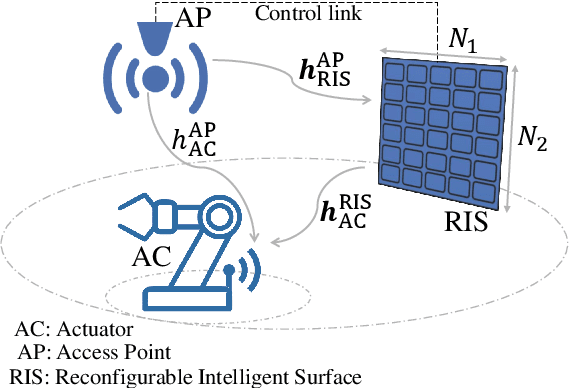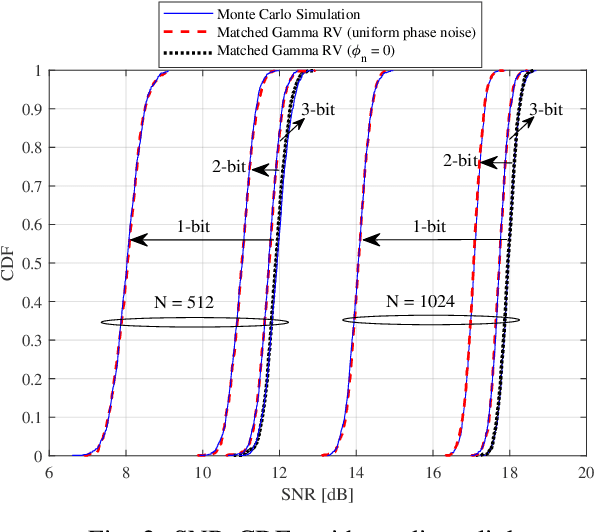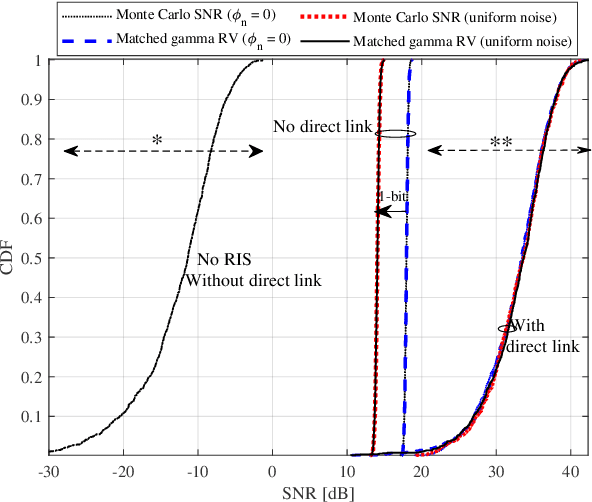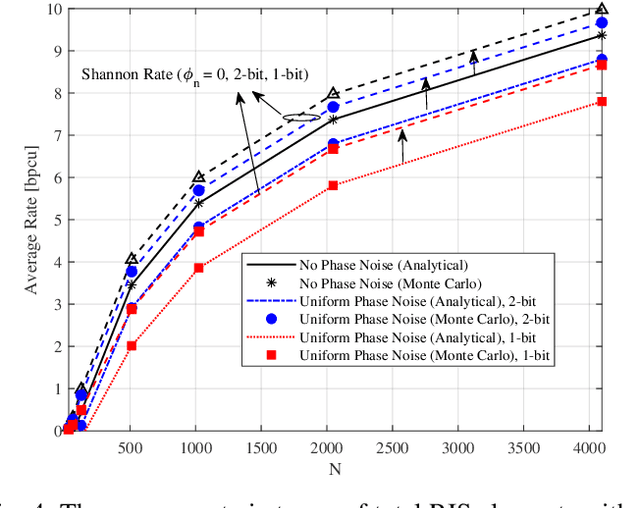Average Rate Analysis of RIS-aided Short Packet Communication in URLLC Systems
Paper and Code
Mar 22, 2021



In this paper, the average achievable rate of a re-configurable intelligent surface (RIS) aided factory automation is investigated in finite blocklength (FBL) regime. First, the composite channel containing the direct path plus the product of reflected paths through the RIS is characterized. Then, the distribution of the received signal-to-noise ratio (SNR) is matched to a Gamma random variable whose parameters depend on the total number of RIS elements as well as the channel pathloss. Next, by assuming FBL model, the achievable rate expression is identified and the corresponding average rate is elaborated based on the proposed SNR distribution. The phase error due to quantizing the phase shifts is considered in the simulation. The numerical results show that Monte Carlo simulations conform to the matched Gamma distribution for the received SNR for large number of RIS elements. In addition, the system reliability indicated by the tightness of the SNR distribution increases when RIS is leveraged particularly when only the reflected channel exists. This highlights the advantages of RIS-aided communications for ultra-reliable low-latency communications (URLLC) systems. The reduction of average achievable rate due to working in FBL regime with respect to Shannon capacity is also investigated as a function of total RIS elements.
 Add to Chrome
Add to Chrome Add to Firefox
Add to Firefox Add to Edge
Add to Edge